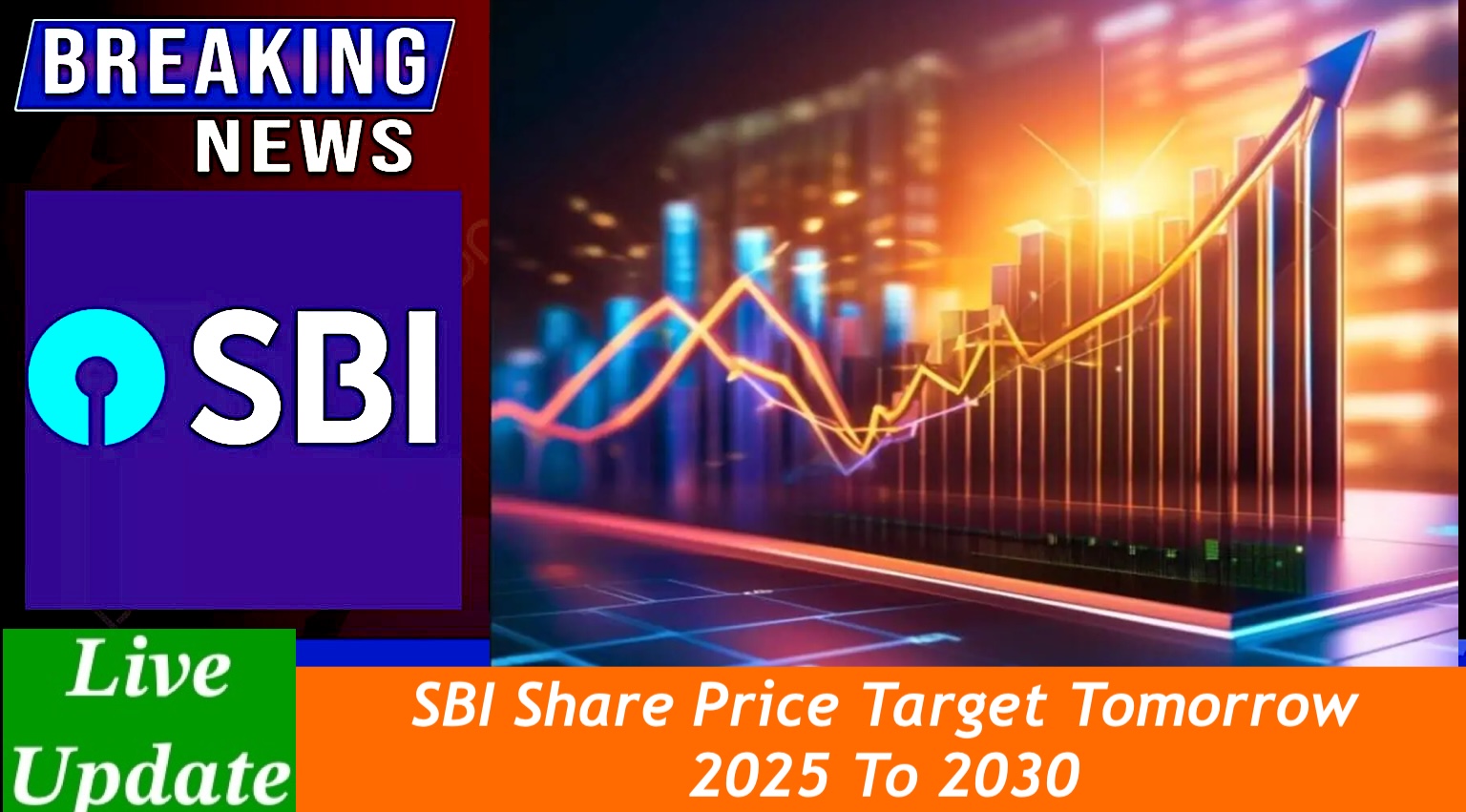SBI Bank Share Price Target Tomorrow 2025 To 2030: State Bank of India (SBI) State Bank of India (SBI), established in 1955, is India’s largest bank, offering a wide array of financial services to individuals, businesses, and government entities. These services include savings and current accounts, loans, credit cards, insurance, and investment products. With a vast network of branches and ATMs across India, and an expanding international presence, SBI aims to make banking more accessible.
SBI Bank Share Price Target Tomorrow 2025, 2026, 2027, 2028, 2029 To 2030 Forecast
Sbi Share Price Live Updates: Consensus analysts rating is Buy. Sbi Share Price Live Updates: The analyst recommendation trend is shown below with the current rating as Buy. The median price target is ₹990.0, 31.65% higher than current market price. SBI Bank Share Price Target Tomorrow 2025 ₹920, 2026 ₹1430, 2027 ₹1826, 2028 ₹2300, 2029 ₹2780 To 2030 ₹3260.
SBI Stock Market Overview
| Metric | Value |
| Share Price (NSE) | ₹744.80 |
| Open Price | ₹760.35 |
| High Price | ₹763.40 |
| Low Price | ₹742.05 |
| Previous Close | ₹760.45 |
| Volume | 11,779,296 |
| Market Cap | ₹663,322 Crores |
| P/E Ratio | 10.48 |
| Dividend Yield | 1.72% |
| 52-Week High | ₹912.00 |
| 52-Week Low | ₹600.65 |
| Face Value | ₹1 |
| VWAP (Volume Weighted Average Price) | ₹748.01 |
| UC Limit (Upper Circuit Limit) | ₹836.45 |
| LC Limit (Lower Circuit Limit) | ₹684.40 |
Competitors of State Bank of India
Here are some of SBI’s top competitors along with their approximate market capitalizations:
| Bank | Market Capitalization |
| HDFC Bank Ltd | ₹12,00,000 Crores |
| ICICI Bank Ltd | ₹7,00,000 Crores |
| Kotak Mahindra Bank Ltd | ₹3,50,000 Crores |
| Axis Bank Ltd | ₹3,10,000 Crores |
| Bank of Baroda | ₹1,00,000 Crores |
SBI Bank Share Price Target Tomorrow (2025–2030)
| Year | Share Price Target (INR) |
| 2025 | ₹920 |
| 2026 | ₹1430 |
| 2027 | ₹1826 |
| 2028 | ₹2300 |
| 2029 | ₹2780 |
| 2030 | ₹3260 |
| Category | Stock Market |
SBI Share Price Target 2025
The expected target for SBI’s share price in 2025 is ₹920. Below are three potential risks and challenges that could affect this target:
- Economic Slowdown: A slowdown in India’s economy could negatively impact SBI’s financial performance. Reduced economic activity may lead to lower demand for loans and financial services, which could affect profitability and, consequently, the share price.
- Regulatory Changes: Changes in banking regulations or government policies could pose challenges for SBI. New regulations regarding capital requirements, lending practices, or interest rates could affect operations and profitability. Unfavorable regulatory changes might lead to increased compliance costs or limit growth opportunities.
- Competition and Market Dynamics: The banking industry is highly competitive, with both traditional banks and fintech companies vying for market share. Increased competition could put pressure on interest margins and pricing strategies. If SBI fails to adapt to these evolving market dynamics or enhance its offerings. It could lose customers, which would negatively affect its share price.
See More: Lyka Labs Share Price Target
SBI Share Price Target 2030
The expected target for SBI’s share price in 2030 is ₹3260. Below are three potential risks and challenges that could affect this long-term target:
- Technological Disruption: The rapid rise of financial technology (fintech) could disrupt traditional banking services. If SBI fails to keep pace with innovations like digital payment systems, blockchain. Rr AI-powered financial services, it may lose market share to more technology-driven competitors, hindering its long-term growth and impacting its share price.
- Global Economic Volatility: Global economic challenges, including recessions, trade tensions. Rr geopolitical risks, could have a negative impact on India’s economy and the banking sector. As a large, globally connected bank, SBI could face difficulties navigating these uncertainties, which might lead to reduced investor confidence and a decline in its share price.
- Rising Non-Performing Assets (NPAs): If economic growth slows or sectors such as real estate and infrastructure face downturns. SBI may experience an increase in non-performing assets (NPAs). A rise in NPAs could reduce profitability and require higher provisioning, posing significant risks to the bank’s financial health and share price in the long run.
See More: Visaka Industries Share Price Target
SBI Shareholding Pattern
| Category | Ownership Percentage |
| Promoters | 57.54% |
| Domestic Institutions | 23.61% |
| Foreign Institutions | 11.16% |
| Retail and Others | 7.70% |
See More: Prozone Realty Share Price Target
SBI Financials
| Financial Metric | Value (INR) | Year-over-Year Change |
| Revenue | ₹3.27 Trillion | +23.35% |
| Operating Expense | ₹2.29 Trillion | +20.54% |
| Net Income | ₹670.85 Billion | +20.55% |
| Net Profit Margin | 20.51% | -2.24% |
| Earnings Per Share | ₹74.38 | +32.14% |
| Effective Tax Rate | 24.94% | — |
Who is the owner of SBI Bank?
Is it good to buy SBI shares?
Sbi Live Updates: Consensus analysts rating is Buy
Sbi Live Updates: The analyst recommendation trend is shown below with the current rating as Buy. The median price target is ₹990.0, 32.62% higher than current market price.
Is SBI going to merge?
SBI Plans To Finalise Merger Of Six Banks Within Three Months. The State Bank of India (SBI) is set to kick off the merger process of five of its associates along with Bharatiya Mahila Bank (BMB) starting from 1 April, with expectations for completion within three months.
